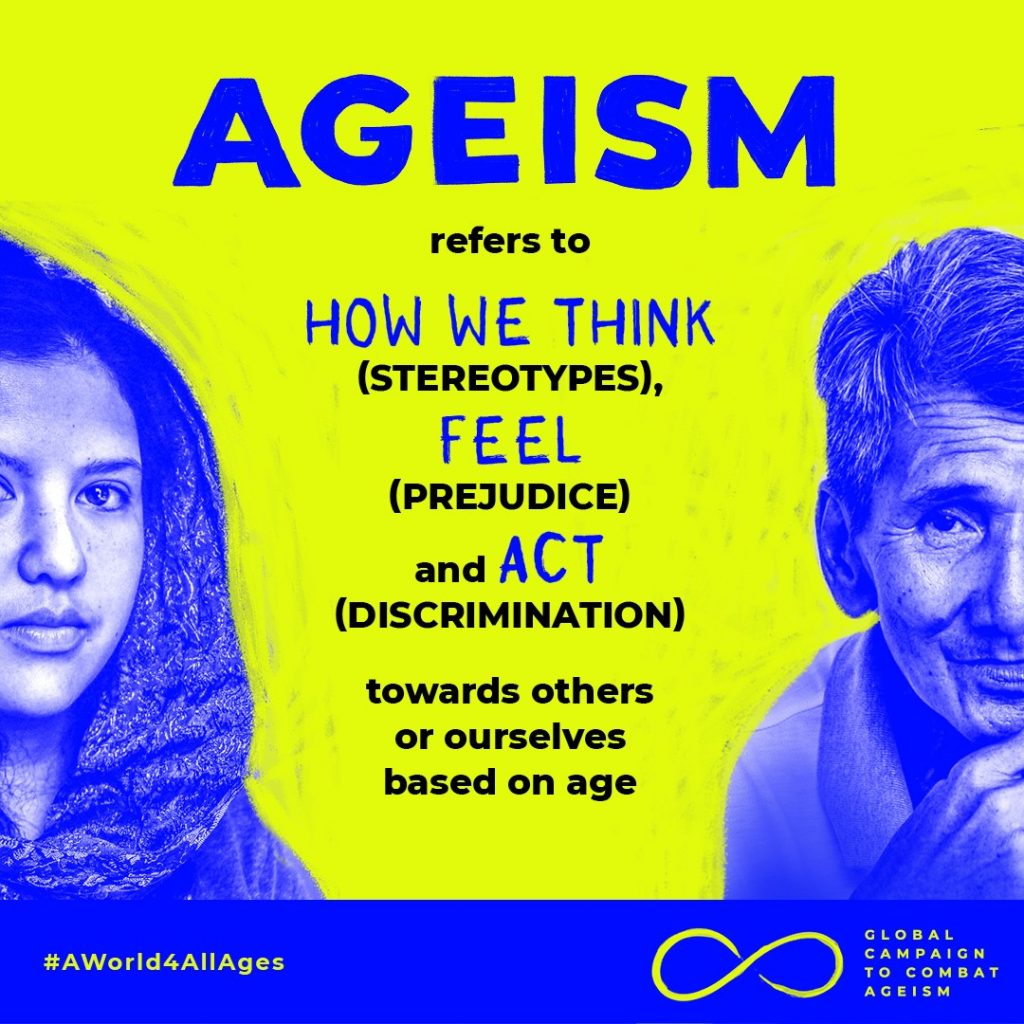The WHO launched a Global report on ageism, which outlines a framework for action to reduce ageism including specific recommendations for different actors (e.g. government, UN agencies, civil society organizations, private sector). It brings together the best available evidence on the nature and magnitude of ageism, its determinants and its impact. It outlines what strategies work to prevent and counter ageism, identifies gaps and proposes future lines of research to improve our understanding of ageism.
JPI MYBL underlines the importance of ageism. Although there is evidence of age discrimination affecting young adults, it is a particular issue in relation to older people.
Older people are more likely than younger people to be excluded from employment and participation in wider society: they are differentially, and less favourably, treated in health and care services and age discrimination is associated with poor physical and mental health. Discrimination rests on attitudes about what ageing is like. Public policy is often based on untested assumptions about capability and motivation to participate. Changing these attitudes is a key to changing policy, to ensure that older people have equal access to services and opportunities.
Although there is a good deal of research into what attitudes people hold, and their impact, there is less evidence on how attitudes to ageing are formed, and how they might be changed positively. Therefore JPI MYBL aims to carry out a joint activity about ageism for which the WHO’s global report will be used as a baseline document. More information will follow in due time.


